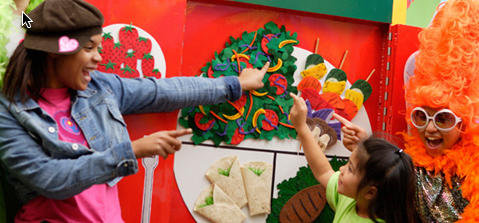“How children and adolescents learn is just as important as what they learn. Health education (and really, any form of education) is most effective when it engages the senses, imagination and inherent creativity.” ~ Huffington Post
Remember those health education classes you had in grade school and high school? Wait, you didn’t have health education in school? That’s not too surprising. Evidence indicates that a significant number of schools don’t provide health education classes due to resource limitations and other competing education needs.
Or maybe you do remember your health education classes, but the lessons and the classes either embarrassed you with their content or bored you to sleep?
Now, imagine if, instead of the teacher doing their best to explain the various food groups to you or a dated video leading you through what to expect as you go through the stages of puberty, you had a live theatre troupe bringing relevant health topics to life in a real-world setting, with acting and dance and memorable songs that kept the messages humming through your mind?
Kaiser Permanente’s Educational Theatre Program does just that, and so much more. It’s an example of where health care systems and schools can partner effectively to convey important messages about health and prevention to young people in ways that really connect with them.
A recent Huffington Post article highlighting the importance of non-traditional methods of teaching and education, such as the Educational Theatre Program, the Walking Classroom and Playworks, to engage students and impart messages about health and well-being.
The video below was produced by Kaiser Permanente’s Institute for Health Policy and features Ray Baxter, PhD, vice president, Community Benefit, Research and Health Policy, along with other health educators discussing why young people enjoy and retain the information in the productions.
Learn how educational theatre helped transform the school environment of this elementary school in Oakland and in South San Francisco, Calif.
Read a 4-part series of how youth in Colorado have been motivated through educational theatre to become leaders and advocates for health in their communities.




